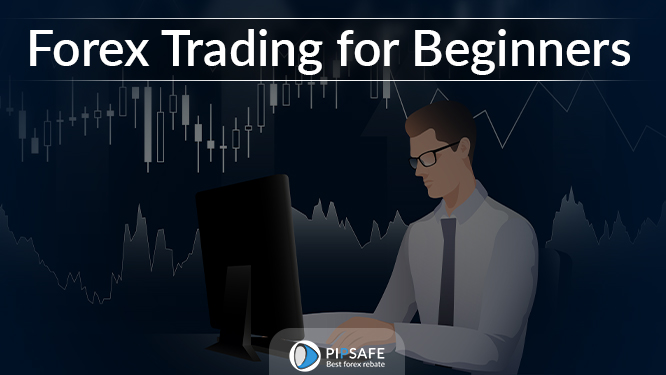Your Personality & Successful Trading
Most people dream of being totally independent and self-sufcient nancially. These people spend millions of pounds on lottery tickets, hoping to be the lucky one to scoop the jackpot. There is another way to make a million, the highly leveraged futures markets. Everyone has heard stories of investors turning small stakes into vast fortunes, and it is this chance that attracts traders to open futures accounts and dream, just like the lottery ticket buyers, of receiving the big payout. The reality of futures trading is different; the prots always seem to be elusive so each time the trader trades he suffers consistent losses rather than consistent prots.
Trading looks deceptively simple, yet few succeed. If you read interviews with the great traders, you will perhaps be
quite surprised to learn that very few are intellectuals, many have never been to college, and a considerable number even dropped out of school. Additionally, most will claim they have simple trading systems that almost anyone can understand. S
o what separates winners from losers?
The answer is not just knowledge of the trading environment, but also an understanding of our personality make-up
and how it needs to interact with the market in order for the trader to emerge with consistent prots. In the following
pages you will learn why an understanding of our own personality is the key to successful trading, and how the emotions of greed, fear, pride and hope are fatal to trading success.
“A cloud does not know why it moves in such a direction at such speed, it just feels a compulsion that this is the place to go now. By the sky knows the reasons and patterns behind the movements, and you’ll know too if you lift yourself high enough to see beyond the horizon.” Richard Bach – Illusions
Take any price of any commodity and you will notice trends over a sustained period of time, where the price moves in a specic direction for a sustained period of time. Many analysts believe that prices are random and that trying to predict future price movement is futile and doomed to failure. However, behind the seemingly chaotic price a movements there is order.
In the following pages I will give you an insight into how and why price movements occur and how, over a period of time, you can capitalise on these moves and how you can trade with the odds of success being rmly in your favour.
SELF CONTROL & DISCIPLINE
“To the destructive element submit yourself.” J. Conrad
Successful trading is 80% psychological and 20% methodical. As I have already said, self-knowledge is the key to market success. A trading method by itself, no matter how well thought out, cannot be successful if it is not applied in the correct manner. It is in the application of a trading method that many traders end up losing. Consider the analogy of a high performance-racing car. No matter how aerodynamic or technically advanced, it needs to be driven. An advanced piece of engineering such as racing car needs to be driven by a person who can drive it with care. Just as a disciplined driver is needed to race a car, a disciplined trader is needed to apply a trading method. All traders have heard the word “discipline”,but few really understand what it is and why it is so important to develop it.
EMOTIONS AT WORK
“When dealing with people, let us remember that we are not dealing with creatures of logic. We are dealing with
creatures of emotion, creatures bursting with prejudices and motivated by price and vanity.” Dale Carnegie
Intelligence, knowledge and talent have to be applied. Any person who is successful knows that application requires discipline,self-control and condence in one’s abilities. Bjorn Borg was a great tennis player, he had talent. However, what always gave him the edge when playing was his mental control, which earned him the nickname “Iceman”. He combined talent and discipline to achieve his success and you must do the same.
We are all put in situations where, after they have occurred, we look back and feel that if only our emotional control
had been better. You are going for a job interview and role-play Th a friend beforehand. You come over as assertive
and condent. In the interview itself, however, the condence goes. You practise a best man’s speech, it ows well and sounds great; however, on the day, delivery suffers as you feel nervous and shy. All the above we can associate with. The fact of the matter is, when the pressure is on, our actions are inuenced by our emotions. The more important the scenarios, the greater the inuence will be.
To read more ,please download the book.
binary options learn, binary options strategy pdf, binary options trader, binary trading strategies pdf, Forex Education, Forex Education Books, forex trading learn, learn binary, learn forex market, learn forex market trading, learning forex trading online, trading binary options strategies and tactics pdf free
Similar Videos and E-books
LEAVE A COMMENT
All Books
For Beginners
- Candlesticks For Support And Resistance
- Online Trading Courses
- Commodity Futures Trading for Beginners
- Hidden Divergence
- Peaks and Troughs
- Reverse Divergences And Momentum
- Strategy:10
- The NYSE Tick Index And Candlesticks
- Trend Determination
- The Original Turtle Trading Rules
- Introduction to Forex
- The Six Forces of Forex
- Study Book for Successful Foreign Exchange Dealing
- Forex. On-Line Manual for Successful Trading
- 18 Trading Champions Share Their Keys to Top Trading Profits
- The Way to Trade Forex
- The Truth About Fibonacci Trading
- Quick Guide to Forex Trading
- Chart Patterns and Technical Indicators
- Forex Trading
- Trading Forex: What Investors Need to Know
- My Dog Ate My Forex
- Point & Figure for Forex
Forex Market in General
- Screen Information, Trader Activity, and Bid-Ask Spreads in a Limit Order Market
- Strategic experimentation in a dealership market
- Limit Orders, Depth, and Volatility
- Reminiscences of a Stock Operator
- Market Profile Basics
- Quote Setting and Price Formation in an Order Driven Market
- Phantom of the Pits
- An Introduction to Market Profile and a Users Guide to Capital Flow Software
- The Effect of Tick Size on Volatility, Trader Behavior, and Market Quality
- Trading as a Business
- What Moves the Currency Market?
- Macroeconomic Implications of the Beliefs and Behavior of Foreign Exchange Traders
- All About the Foreign Exchange Market in the United States
Psychology of Trading
- A Course in Miracles
- Thoughts on Trading
- Calming The Mind So That Body Can Perform
- Lifestyles of the Rich and Pipped
- The Miracle of Discipline
- Zoom in on Personal Trading Behavior And Profit from It
- The Woodchuck and the Possum
- 25 Rules Of Forex Trading Discipline
- Stop Losses Are For Sissies
- Your Personality and Successful Trading
- Trading as a Business
- The 7 Deadly Sins of Forex (and How to Avoid Them)
- The 5 Steps to Becoming a Trader
Money Management
- Risk Control and Money Management
- Money Management
- Position-sizing Effects on Trader Performance: An experimental analysis
- Fine-Tuning Your Money Management System
- Money Management: Controlling Risk and Capturing Profits
- Money Management Strategies for Serious Traders
- The Truth About Money Management
- Money Management and Risk Management
Forex Strategy
- 1-2-3 System
- Bollinger Bandit Trading Strategy
- Value Area
- The Dynamic Breakout II Strategy
- Ghost Trader Trading Strategy
- King Keltner Trading Strategy
- Scalp Trading Methods
- LSS - An Introduction to the 3-Day Cycle Method
- Market Turns And Continuation Moves With The Tick Index
- The Money Manager Trading Strategy
- Picking Tops And Bottoms With The Tick Index
- The Super Combo Day Trading Strategy
- The Eleven Elliott Wave Patterns
- The Thermostat Trading Strategy
- Intraday trading with the TICK
- Traders Trick Entry
- Fibonacci Trader Journal
- Rapid Forex
- Microtrading the 1 Minute Chart
- BunnyGirl Forex Trading Strategy Rules and FAQ
- The Daily Fozzy Method
- Forex Traders Cheat Sheet
- Offset Trading
- How to Trade Both Trend and Range Markets by Single Strategy?
- A Practical Guide to Technical Indicators; Moving Averages
- FX Wizard
- FX Destroyer
- A Practical Guide to Swing Trading
- Practical Fibonacci Methods for Forex Trading
- Using The Heikin-Ashi Technique
- The Day Trade Forex System
- 5/13/62
- Not So Squeezy Trading Manual
- KobasFX Strategy
- Killer Patterns
- 3D Trading
- 4 Hour MACD Forex Strategy
- WRB Analysis Tutorial
Advanced Forex Trading
- A New Interpretation of Information Rate
- CCI Manual
- Nicktrader and Jeff Explaining Reverse and Regular Divers
- NickTrader on No Price CCI Divergence Trading
- Are Supply and Demand Driving Stock Prices?
- The Sharpe Ratio
- The Interaction Between the Frequency of Market Quotes, Spread and Volatility in Forex
- Trend Determination
- Trend vs. No Trend
- A Six-Part Study Guide to Market Profile
- How George Soros Knows What He Knows
- Core Point and Figure Chart Patterns
- Coders Guru Full Course
- Point and Figure Charting: a Computational Methodology and Trading Rule Performance in the S&P 500 Futures Market
- Evolving Chart Pattern Sensitive Neural Network Based Forex Trading Agents
- Heisenberg Uncertainty Principle and Economic Analogues of Basic Physical Quantities
- The String Prediction Models as an Invariants of Time Series in Forex Market
- Using Recurrent Neural Networks to Forecasting of Forex
- The New Elliott Wave Rule - Achieve Definitive Wave Counts








